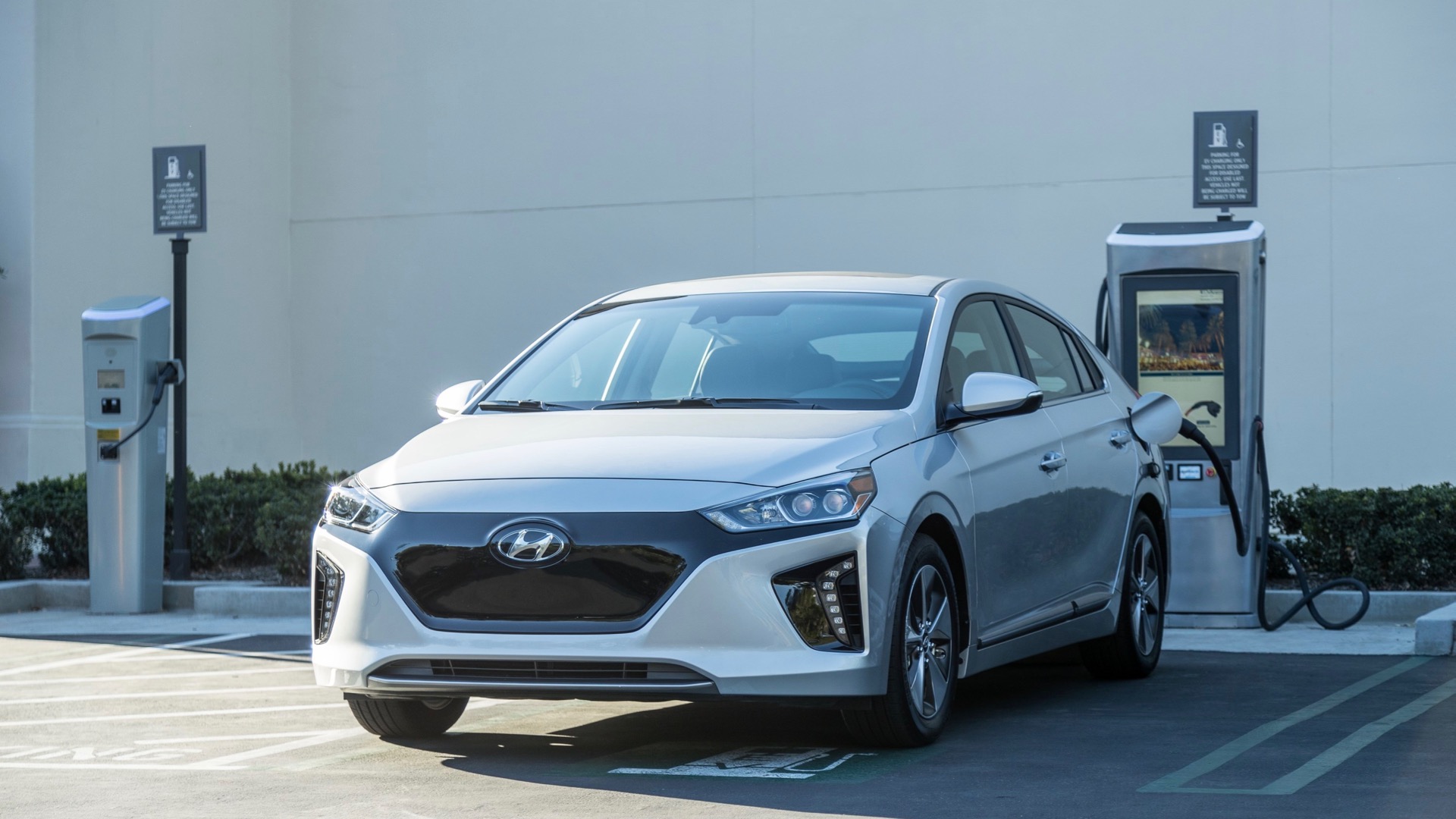

Hyundai will launch a new car on a dedicated platform in 2020. The Korean automaker already has the Kona Electric and Ioniq Electric, but both are derivatives of existing models sold with other powertrains. The new electric car will be Hyundai’s first true rival to the Nissan Leaf and Chevrolet Bolt EV.
No other details of the new electric car were discussed, but the car was briefly mentioned in a Wednesday announcement of Hyundai’s long-term business strategy, which will focus heavily on emerging technologies like electric powertrains.
Earlier this year, Hyundai said it will launch 44 electrified models (meaning hybrid and all-electric) by 2025, totaling projected annual sales of 1.67 million units globally. In its Wednesday announcement, Hyundai added that it hopes to become “one of the world’s top three EV manufacturers” by 2025.
Hyundai did not mention any electric models for its other brands like Kia and possibly Genesis will count toward the 44-model total. Kia already sells the Soul EV, and is launching an electric version of the Niro. But like Hyundai, Kia doesn’t currently have an electric car based on a dedicated platform. Given how much platform sharing goes on between Kia and Hyundai, it’s not hard to picture a Kia version of Hyundai’s new electric car.
Hyundai’s announcement also mentioned the much-discussed Genesis SUV, which is scheduled to debut later this year, but not electrification plans for the luxury brand. But given how quickly other luxury brands are moving toward electric powertrains, it’s likely only a matter of time until Genesis follows suit.
Hyundai said it will invest 45.3 trillion won (about $40 billion) in research and development over the next five years. That will include 3.3 trillion won (about $2.9 billion) for electrification, and 2.5 trillion won (about $2.2 billion) for autonomous driving and connected-car technologies. Hyundai is working with U.S. startup Aurora Innovation on autonomous-driving tech. It plans to launch a trial “autonomous robot taxi” program in South Korea in 2021.